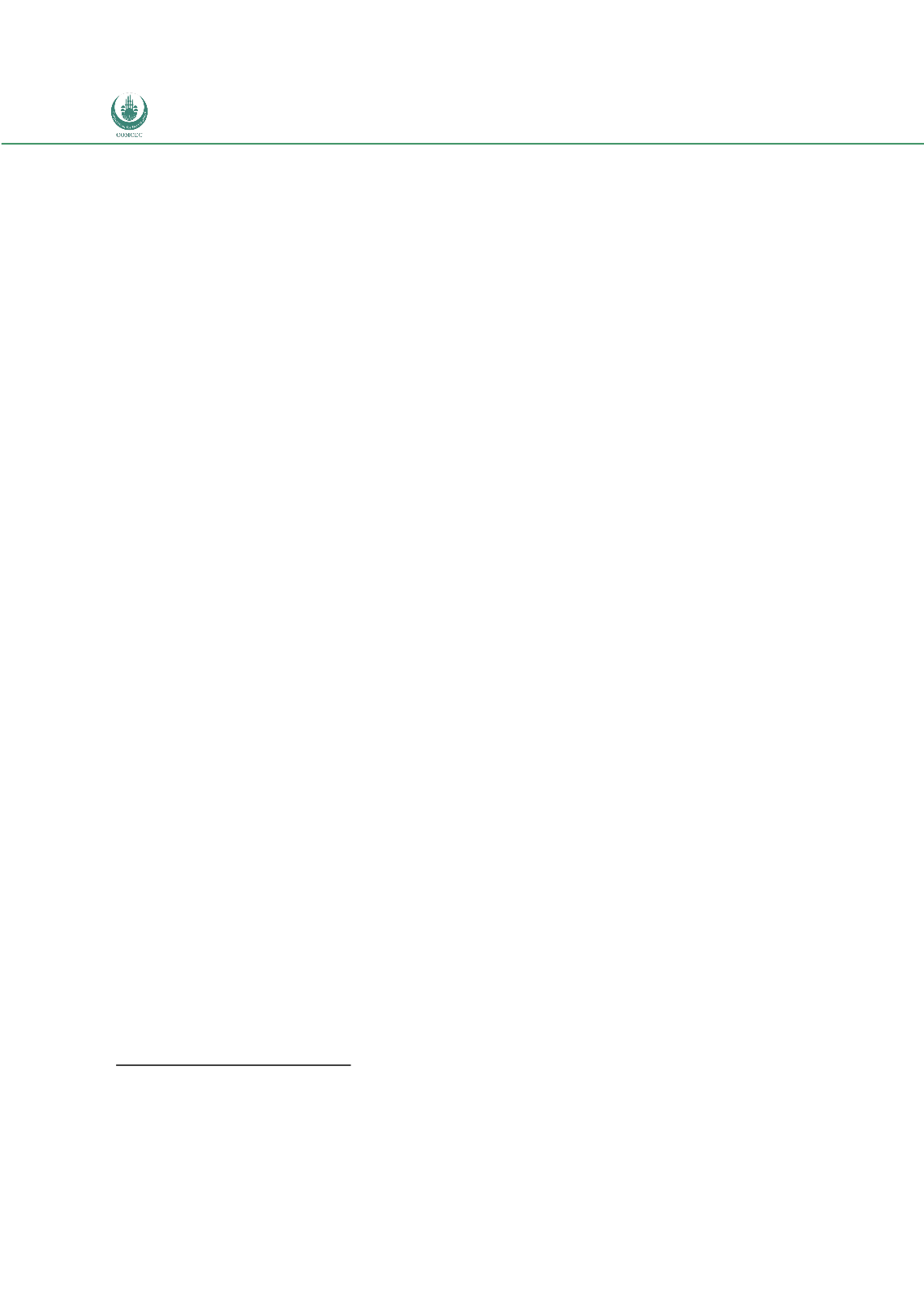

FACILITATING INTRA-OIC TRADE:
Improving the Efficiency of the Customs Procedures in the OIC Member States
54
entered into force for those countries. The period is 60 months for the transitional
standards.
4
As it was discussed earlier, there are many modern techniques and procedures brought
by the RKC which require enabling legal framework. Without adopting new laws or
regulations, implementation of these procedures will not be possible.
It is worth noting that, actions or laws required to increase the standards vary among the
countries. Diagnostic study to be carried out by experienced experts will be an
important tool to determine needs on possible changes or amendments on the existing
laws.
Moreover, the new business environment to be brought will require new institutional
and human resources regulations. As a result, the Customs Legal Framework shall be
developed or amended with a view to provide a modern basis for well-functioning of
the customs procedures.
The European Customs Blueprints is an important reference in designing the legal
framework for customs. The objective of the modern customs defined in the document
is as follows:
“To build a stable and comprehensive legal system which ensures that proper, uniform
and/or harmonised application of national and international customs-related legislation
enhances the powers and penalties available to customs officers, and sets out the
obligations and rights of customs officers, economic operators and the public in a
transparent way.” (European Commission 2007)
Meeting the needs and increasing the standards of customs procedures is a continuous
process. The laws and regulations shall be reviewed regularly in consultation with the
relevant stakeholders to solve the possible obstacles to be faced and to catch up the
global trends.
-Administrative and Institutional Arrangements
Institutional reform of the Customs Administration is also essential for implementing
the reforms. Customs Administration shall be restructured with a view to implement the
new functions. Risk Management, Post Clearance Audit, ICT, Appeals, Human
Resources and International Relations are some of the requirements of the modern
customs which need to be carried out by dedicated units. Moreover, strategic planning,
4
According to Article 13/4 Management Committee may extend the time period for a country,
if that country has a request before the end of these periods. The requesting country shall
specify the Standard and the reason for such request.

















